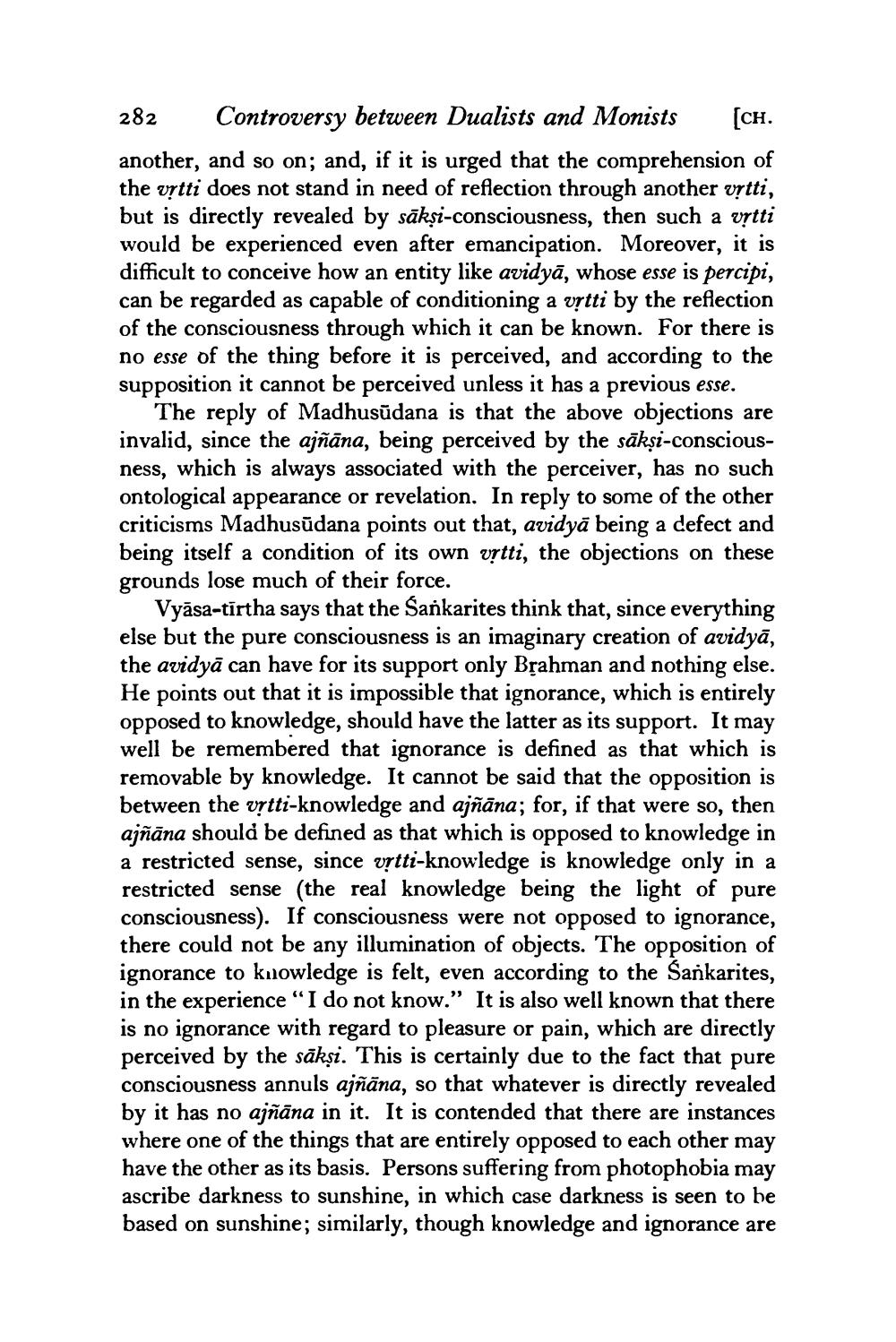________________
282 Controversy between Dualists and Monists [CH. another, and so on; and, if it is urged that the comprehension of the vștti does not stand in need of reflection through another vịtti, but is directly revealed by sākṣi-consciousness, then such a vrtti would be experienced even after emancipation. Moreover, it is difficult to conceive how an entity like avidyā, whose esse is percipi, can be regarded as capable of conditioning a vrtti by the reflection of the consciousness through which it can be known. For there is no esse of the thing before it is perceived, and according to the supposition it cannot be perceived unless it has a previous esse.
The reply of Madhusūdana is that the above objections are invalid, since the ajñāna, being perceived by the sāksi-consciousness, which is always associated with the perceiver, has no such ontological appearance or revelation. In reply to some of the other criticisms Madhusūdana points out that, avidyā being a defect and being itself a condition of its own vịtti, the objections on these grounds lose much of their force.
Vyāsa-tīrtha says that the Sankarites think that, since everything else but the pure consciousness is an imaginary creation of avidyā, the avidyā can have for its support only Brahman and nothing else. He points out that it is impossible that ignorance, which is entirely opposed to knowledge, should have the latter as its support. It may well be remembered that ignorance is defined as that which is removable by knowledge. It cannot be said that the opposition is between the vștti-knowledge and ajñāna; for, if that were so, then ajñāna should be defined as that which is opposed to knowledge in a restricted sense, since vrtti-knowledge is knowledge only in a restricted sense (the real knowledge being the light of pure consciousness). If consciousness were not opposed to ignorance, there could not be any illumination of objects. The opposition of ignorance to kuowledge is felt, even according to the Sankarites, in the experience “I do not know.” It is also well known that there is no ignorance with regard to pleasure or pain, which are directly perceived by the sākṣi. This is certainly due to the fact that pure consciousness annuls ajñāna, so that whatever is directly revealed by it has no ajñāna in it. It is contended that there are instances where one of the things that are entirely opposed to each other may have the other as its basis. Persons suffering from photophobia may ascribe darkness to sunshine, in which case darkness is seen to be based on sunshine; similarly, though knowledge and ignorance are




